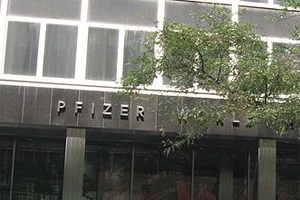
Pfizer’s efforts to protect its arthritis drug Xeljanz from generic competition in India have been knocked back after its application for a patent was rejected once again.
Xeljanz (tofacitinib) is currently the only drug in the new JAK inhibitor class available on the market, having first been approved to treat rheumatoid arthritis in 2012, although rivals are moving through late-stage development.
The patent under dispute in India is for an improved chemical formulation of tofacitinib, and the base patent for the drug substance remains in force.
The Indian Patent Office rejected Pfizer’s patent application for the second time, saying it does not consider the drug to be an invention as it isn’t therapeutically more effective than the original compound, as required under the notorious Section 3(d) clause of the country’s intellectual property (IP) law.
“Salts, esters, ethers, polymorphs, metabolites, pure form, particle size, isomers, mixtures of isomers, complexes, combinations and other derivatives of known substances shall be considered to be the same substance, unless they differ significantly in properties with regard to efficacy,” said the IPO in its ruling.
Last October, the Intellectual Property Appellate Board (IPAB) set aside a 2011 IPO order rejecting the tofacitinib patent after an appeal by Pfizer, saying that the assistant controller of patents & design behind the decision had erred and the decision was flawed.
The IPAB ordered the patent to be reconsidered by another assistant controller but – once again – the patent has been rejected. Pfizer has said it is considering its options for further action in the case.
The drugmaker’s problems are another example of the challenging IP environment in India, with a string of incidents in which new drugs have been denied patents in recent years.
In January the IPO rejected Gilead’s application for a patent on hepatitis C drug Sovaldi (sofosbuvir) – once again with reference to Section 3(d).
Earlier cases have involved Novartis’ cancer drug Glivec (imatinib), Roche ‘s Pegasys (peginterferon alfa-2a) for hepatitis, Merck & Co’s asthma treatment Singulair (montelukast), Gilead’s HIV drug Viread (tenofovir) and Pfizer’s cancer drug Sutent (sunitinib), amongst others.
Once tipped to become a blockbuster brand with sales of $3bn a year or more, Xeljanz has been held back by failure to secure approval in Europe and a limited approval in the US based on a risk:benefit analysis.
Broader use has started to kick-start sales, however, and the drug brought in $224m in the first half of this year, a rise of 86% on the same period of 2014.




